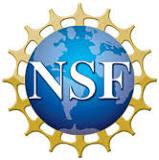Tyler McCormick, Nathalie Williams, and Katherine Stovel have each been awarded a new grant from the National Science Foundation to study aspects of new data intensive technologies. These grants reflect our collective stength in bringing tools from statistics and data science to pressing and/or basic social scientific problems.
The rapidly burgeoning amount of digital data from Internet and mobile-enabled communications can offer low-cost and high-resolution views into human behavior across areas such as health and socio-economics. Personally-generated data from Internet and mobile-connected sources offer unique insight, capturing aspects of human behavior that would be taxing or impossible to quantify through other data sources. Moreover, the data is often available in real time and can be linked to specific locations. This research project addresses the statistical challenges inherent in using such unstructured spatio-temporal data sets for detection of anomalous events."
ATD: Geospatial Graphical Models of Human Response to Emergencies Adrian Dobra (UW Statistics) and Nathalie Williams, co-PIS
This three-year project will use novel machine learning tools to identify spatiotemporal patterns of reactions in human behavioral responses to emergency events. The goal is to improve the ability to use publicly-available large-scale human-generated geospatial data sources for identification of emergency events.
Echo Chambers in Science? The Impact of Academic Recommender Systems on the Dissemination of Scientific Knowledge, Katherine Stovel and Jevin West (UW I-School), co-PIs.
Most scientists now access the literature through online search engines and digital libraries, and rare is the scientist who walks to the library and peruses the journal shelves for new papers. These new algorithmic search engines thus provide scholars with a new lens into the published scientific literature, and this project aims to better understand the implications of these technological changes on the practice of scientific discovery and information dissemination. The project investigates whether these new tools are increasing access to a wider range of prior literature and thereby democratizing science, or instead concentrating scholars' gaze onto an ever smaller set of "star" papers.
